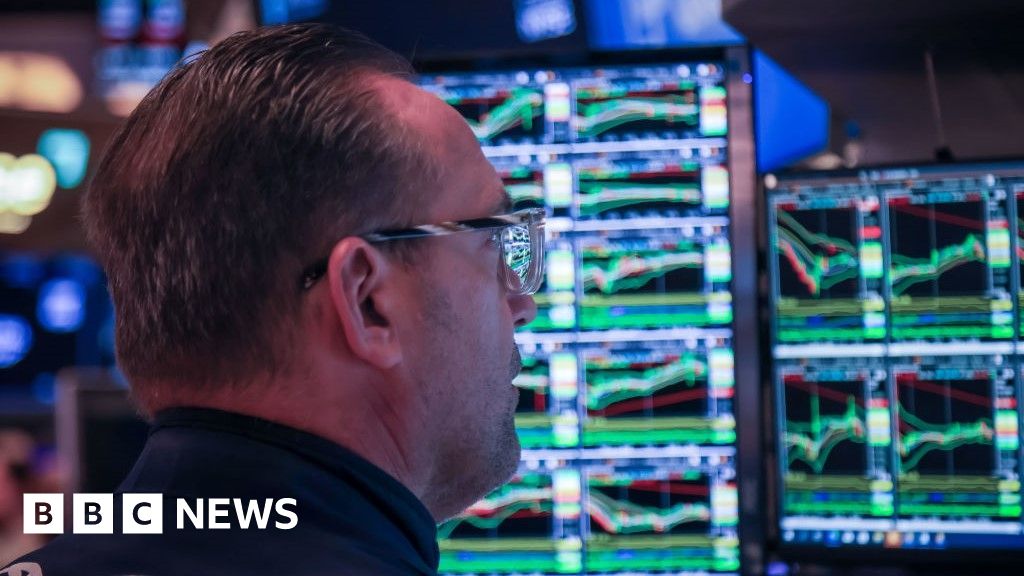Unlock the Editor’s Digest for free
Roula Khalaf, Editor of the FT, selects her favourite stories in this weekly newsletter.
The writer is editorial director and a columnist at Le Monde
Emmanuel Macron burst on to the European scene in 2017 as the innovative politician who stopped the populist wave then sweeping Britain, America, Italy and central Europe. Last week, in an implicit admission of his failure, he unveiled a plan to salvage his second term and avoid his worst nightmare: handing over the keys to the Elysée palace in 2027 to Marine Le Pen, the far-right leader he defeated twice.
As the Germans take to the streets to protest against the extremist plots of their own far-right party Alternative for Germany, French commentators on morning radio shows are discussing a future scenario that features Le Pen as head of state and Jordan Bardella, the 28-year-old man she has appointed to lead the Rassemblement National (RN), as her prime minister.
This is a remarkable achievement for the RN. Still demonised five years ago, the party now claims the mainstream mantle, thanks to the shrewd management of its 88 members in the National Assembly. It is also a remarkable challenge for those who see through this newly built respectability to a lurking danger to democracy. The strong possibility of Donald Trump returning to the White House after November’s US election is only adding to their sense of alarm.
With polls that show a 10-point lead for the RN — with almost 30 per cent of voters saying they intend to vote for the party — over his own party, Renaissance, ahead of the European Parliament elections in June, Macron wants to give a new direction to his presidency. That direction, clearly, is a turn to the right, as his controversial immigration bill showed — it finally passed in December, after almost splitting his troops. Gone is the mantra of the French president’s first term, the en même temps which allowed him to borrow from both the left and the right. French citizens, he now thinks, want order and authority.
This is precisely what made his new prime minister popular during his short stint as education minister — 34-year-old Gabriel Attal started with banning the abaya, the Muslim robe, from public schools. Macron is now taking things a step further. In a two-and-a-half hour, almost-monarchical, press conference on prime time national television, he explained how France should take back control of its youth.
“Civic rearmament”, as he described it, will make a fractured society strong again and schools will be the new barracks of this strategy. Call it the weaponisation of education: “La Marseillaise” will be taught in primary school, civic education lessons will be doubled, school uniforms will be tested and, if successful, rolled out across the education system in 2026. Graduation ceremonies will be reinstated to restore merit and pride. The president suggests regulating the amount of time children spend in front of screens; drama classes could be offered instead.
In addition, at a time of demographic decline, Macron also has a plan to fill up these schools with new soldiers. A national fight against infertility will be launched and a better-paid six-month “newborn leave” for both parents will replace the current system of parental leave.
Experts were quick to identify the shadow of former president Nicolas Sarkozy, to whom Macron has stayed close. In 2007, Sarkozy managed to steal around one million votes from Jean-Marie Le Pen with his slogan “Work more, earn more”. Macron’s conspicuously similar “Earning a better living through work”, as well as his focus on the middle class, are just the latest attempts to redirect those estranged voters from the far right to the centre-right. So was picking eight ministers out of 14 from the conservative ranks for the reshuffled government, including Rachida Dati, one of Sarkozy’s favourites.
It is a tall order. Europe is restless and France cannot keep quiet. Less than two weeks after becoming “France’s youngest prime minister of France’s youngest president”, as he put it, Attal is facing his first trial by fire: dealing with angry farmers. A “green vests” movement is the last thing Macron needs. And Le Pen knows it — the young Bardella was quick to buy a pair of rubber boots, jump on a train to Médoc over the weekend and mobilise protesting farmers against Brussels’ green deal.
This is the first big battle in the campaign for the European elections. Macron cannot afford to lose them if he wants to avoid the fate Barack Obama endured — succession by a Trump equivalent — and to save his still ambitious European agenda. Wary of the risk of becoming a lame duck president, he keeps running, confusing his centre-left supporters who have nowhere to go while trying to ignore a fundamental contradiction: designating the far right as the enemy while legitimising some of its dreams.
Credit: Source link










